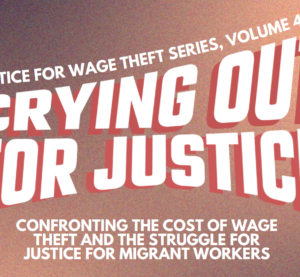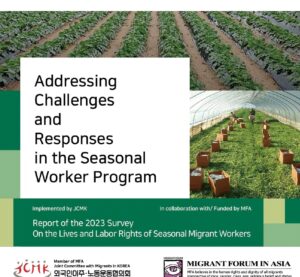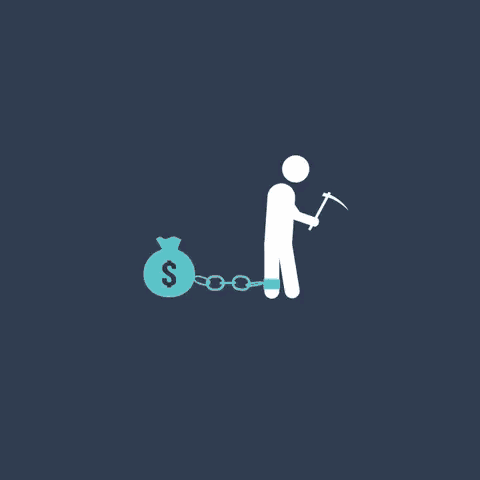International Day for the Eradication of Poverty – Migrant Women Forum’s Statement
— October 18, 2021International Day for the Eradication of Poverty – Migrant Women Forum’s Statement
October 17, 2021
“Poverty. . . is about the deprivation of economic and social rights, insecurity, discrimination, exclusion and powerlessness. That is why human rights must not be ignored but given even greater prominence in times of economic crisis.”
- Irene Khan, 2010
Today marks the 29th anniversary of the International Day for the Eradication of Poverty since its adoption through Resolution 47/196 in December 1992. In these past two decades, significant efforts have been made in addressing poverty. The first Sustainable Development Goal is representative of the goal and dedication to eradicate poverty in all forms. In the past year alone, however, COVID-19 has largely impeded the efforts made and set back critical progress.
The pandemic has driven 96 million more people into extreme poverty, 47 million of whom are women, increasing the number of women in poverty in 2022 to 435 million.[1] This worsened poverty gap reflects how the impacts of crisis are never gender-neutral. Women are disproportionately affected by COVID-19 and migrant women are amongst those vulnerable, being further pushed into poverty as economies decline, jobs are lost, access to food and water are limited, and health becomes threatened.
Migrant women were hit the hardest when economies declined and mobility was restricted. Many were working primarily in essential but low-paid or unpaid and vulnerable occupations. The issue of unequal wages between men and women have long been a concern for migrant women. It is further exacerbated by the rampant wage theft which migrant women experience during this pandemic. Working primarily in less regulated or informal sectors also meant that migrant women had less access to social protection.
Migrant Women Forum (MWF) recognises that poverty is a multidimensional and complex reality. Women are often driven to migrate due to economic insecurity, seeking better opportunities for themselves and their families. Migration also provides women the opportunity to escape intersecting inequalities of poverty which shape the experiences of migrant women in their origin countries. However, intersecting inequalities of gender and race overseas have also prevented migrant women from accessing the same economic opportunities and rights as men and nationals.
Poverty takes on different forms, encompassing not only a lack of income but the deprivation of basic capabilities to live in dignity, from improved drinking water, sanitation, electricity, and clean cooking fuels, to healthcare, and to social protection. Migrant women, especially those in informal sector and/or with irregular migration status, have faced barriers to accessing these basic services long before the pandemic.
This year’s theme for the International Day of Eradication of Poverty, “Building forward together: Ending Persistent Poverty, Respecting all People and our Planet,” recognises that poverty persists because of long-time structural inequalities which continue to marginalize migrant women under this pandemic. Building forward then means dismantling structures of inequality that harm migrant women in poverty. It demands a multi-sectoral and coordinated effort wherein policy and action are grounded on the moral and legal framework of human rights. Migrant women are amongst the strongest drivers for development yet receive little support in upholding their human dignity. Migrant women have large contributions to economic remittances and have significant roles in social and cultural transfers. These should never be at the expense of the welfare migrant women. Barriers to migrant women’s rights are the same barriers that prevent society from fully realizing that poverty alleviation benefits from women’s migration experience
As we strive to move past this global crisis and build forward together, MWF calls for:
- Representative and participative decision-making and policy-making for poverty alleviation.
- Migrant women to be given the same immediate and long-term social protection given to nationals to safeguard and build resilience against environmental, economic and social crises that also considers its gendered dimension.
- Development strategies for economic security to be gender-sensitive and are informed by sex-aggregated data.
- Development programs following COVID-19 to address not only economic and financial insecurity but also comprehensibly address the deprivation of basic services such as food, water, health care, education, and social protection.
- Migration governance to reflect migrant women’s capacity to contribute to poverty alleviation and development.
MWF commits to the principle of the 2030 Agenda which leaves no one behind, including migrant women. As echoed in Irene Khan’s arguments on poverty crisis being a human rights crisis[2], advocating and fighting for the eradication of poverty means to uphold the rights of migrant women and empower them. Building forward means not only inclusivity for migrant women, but insists that migrant women are actively supported to be in the frontline in the movement to eradicate poverty.
[1] UN Women, COVID-19 and its economic toll on women: The story behind the numbers, 2020
[2] Amnesty International, The Unheard Truth: World leaders must change debate on poverty and human rights, 2009



